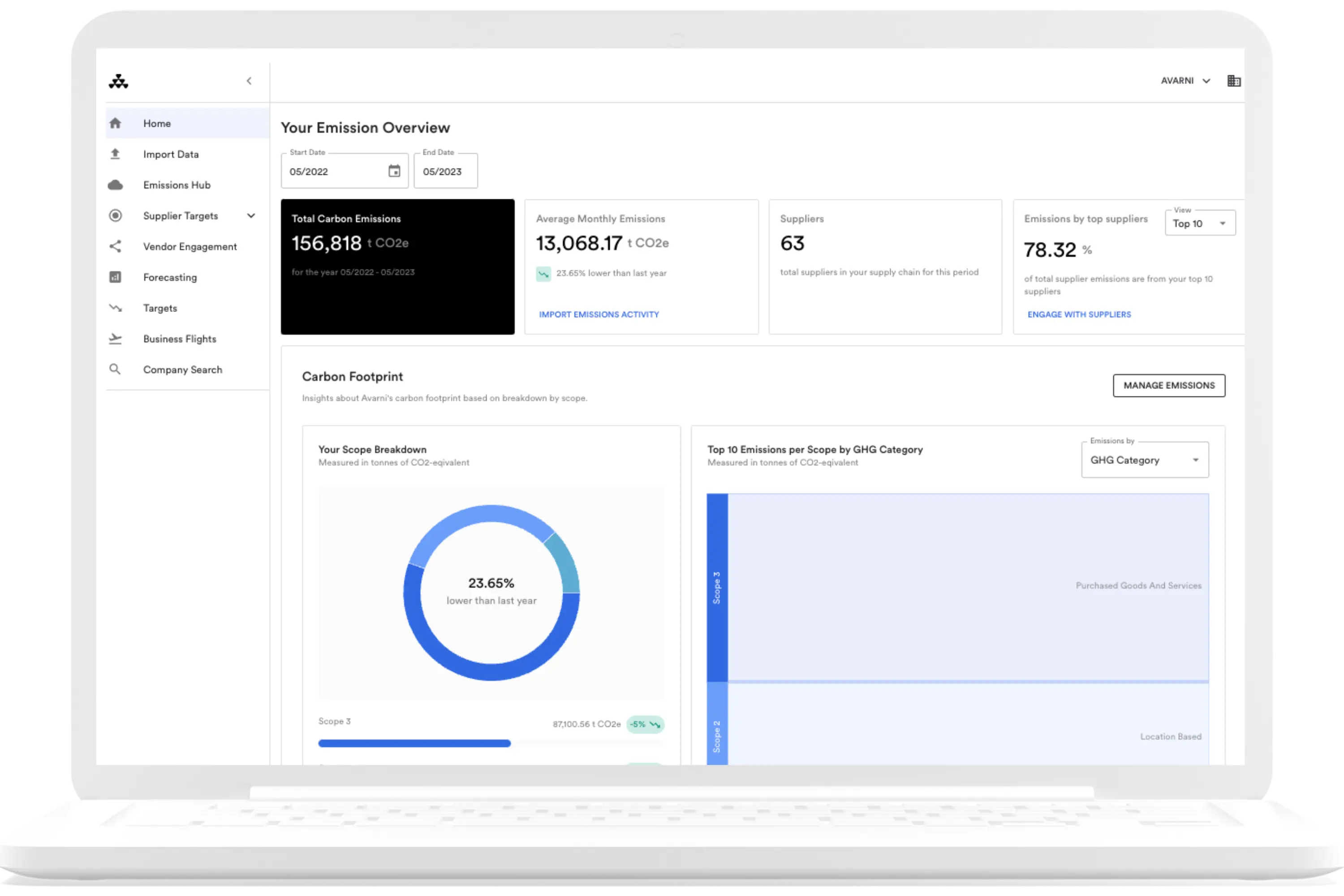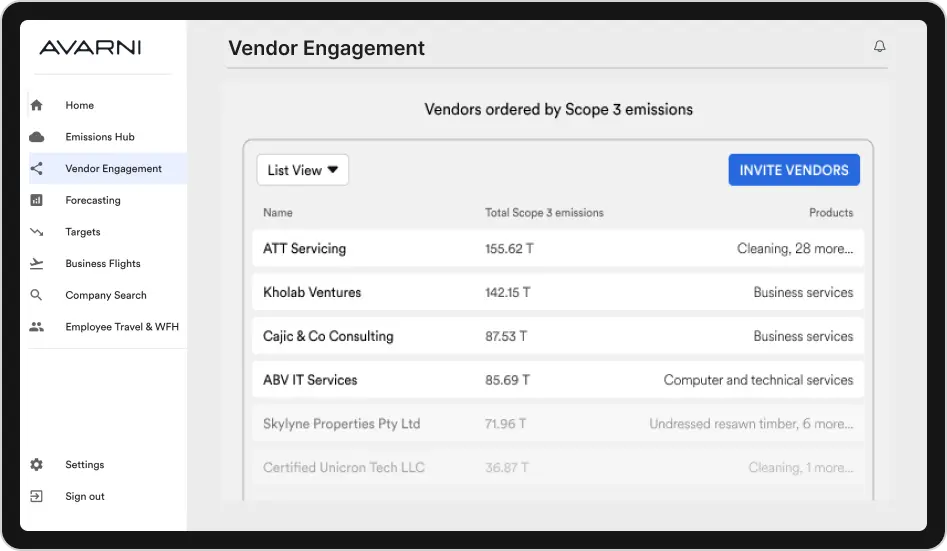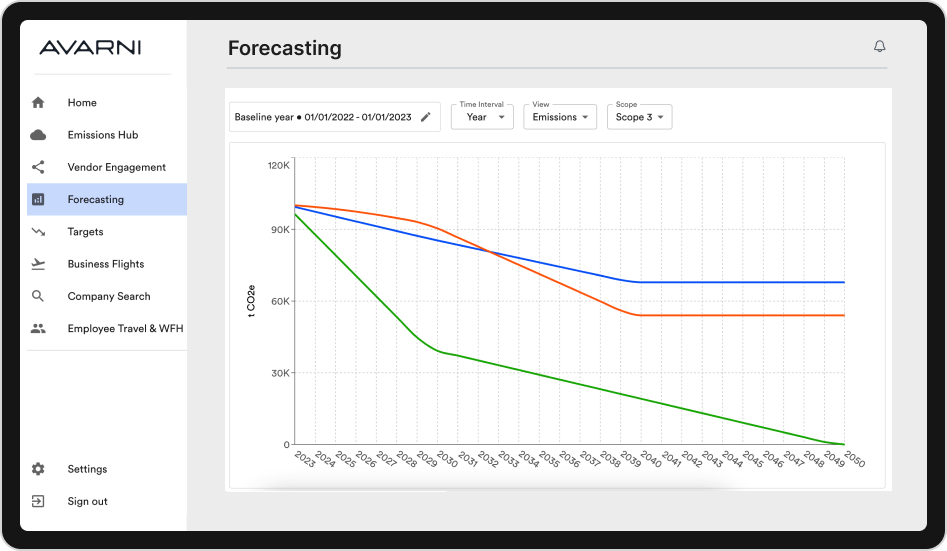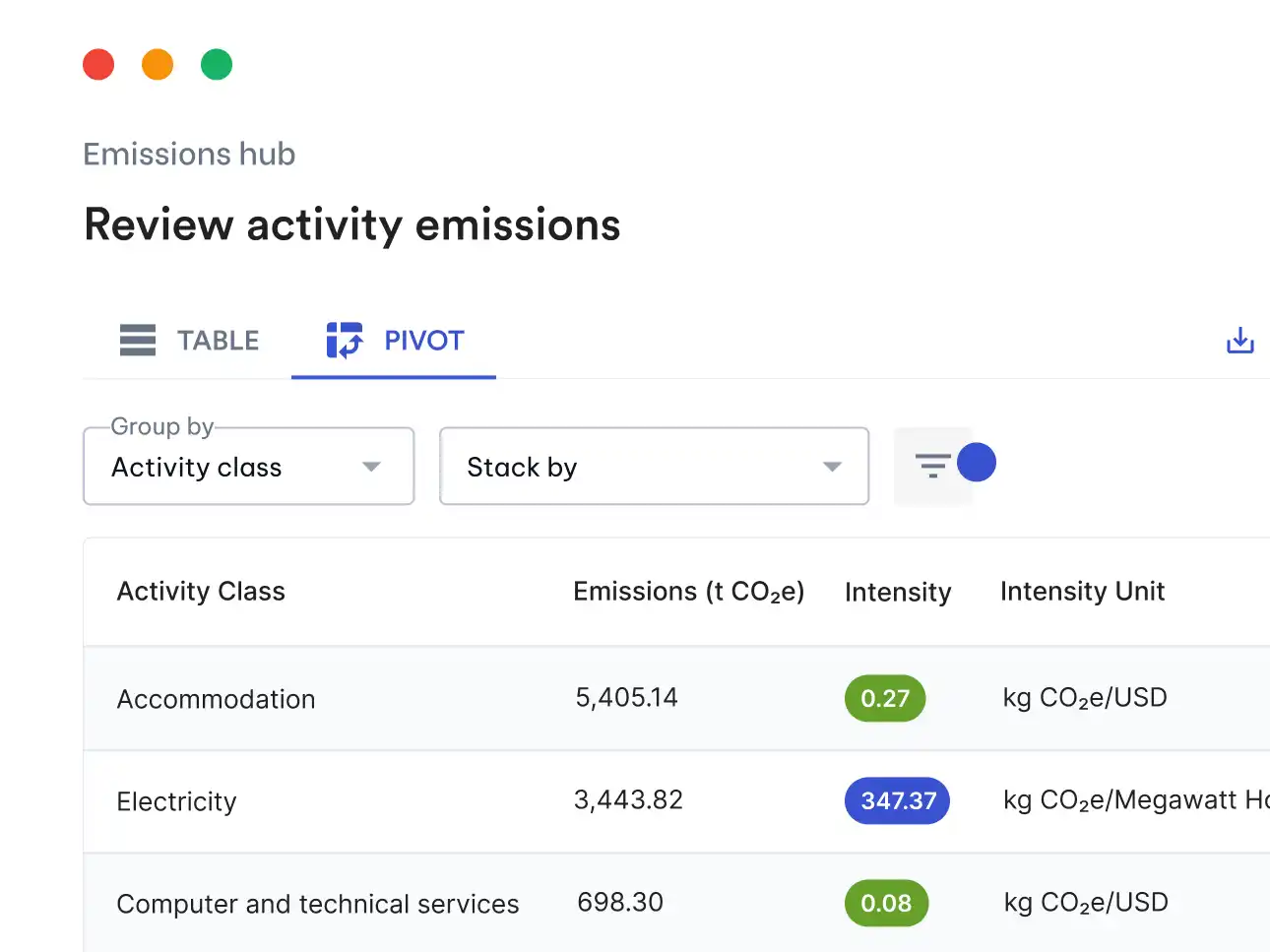Over 80% of a company’s carbon emissions come from its supply chain. These “Scope 3” emissions are all indirect emissions that come from activities that occur in your company’s value chain, but are not directly controlled by your company. These sources include the use of purchased goods and services, fuel- and energy-related activities, employee business travel, waste generated from operations, transport-related activities, and the use of leased assets.
By understanding and measuring your Scope 3 emissions, you can gain a better understanding of your entire carbon footprint. But it’s only by engaging with your suppliers to reduce their emissions that you’ll be able to meet your long-term decarbonization objectives. There are a few ways you can do this, including setting clear goals, using consistent reporting, empowering your suppliers, leveraging technology, and forging a joint path to sustainability. Read on to learn more.
Set clear goals
Start off by making your vendors aware of the importance of their carbon footprint in their deliverables to you. Setting key performance indicators (KPIs) that benefit all parties is a great way to ensure that the supply chain has a clear understanding of what is required. These KPIs should be tailored to suit the services and products provided by your suppliers, to ensure that your goals and benchmarks are being met. It is also essential that these KPIs are consistent and uniform across the entire supply chain, to enable progress to be accurately tracked.
Use consistent reporting
Suppliers often feel overwhelmed with multiple customers requesting different reporting emissions reporting formats. To ensure that vendors are not wasting time and resources duplicating efforts, you should ensure consistency in the reporting of emissions metrics and goals across your company and their supply chain. Establishing standardized questionnaires, audits, and other reporting forms can help to improve the quality of data, increase performance and meet targets.
Empower your vendors
Suppliers often lack the institutional knowledge or resources to meet new and challenging requirements, targets, and policy frameworks. Smaller vendors may need more guidance or support to establish a comprehensive data tracking system. To ensure that suppliers are able to adequately comply, you should work with them to help them evolve and improve, rather than switching to a different vendor. You should strive to engage, educate, and provide suppliers with the resources they need to succeed, such as training and education, subsidies and investments in their sustainability programs.
Leverage technology
Technology can be a powerful tool to help companies and their vendors to track and report on their carbon emissions. Carbon management software reduces the administrative burden of manually calculating emissions in carbon accounting spreadsheets by automating the tracking and reporting of emissions throughout the value chain. This makes it easy to identify emissions hotspots within your supply chain, and make data-driven decisions. Additionally, the software can model scenarios to plan and compare future carbon reduction plans. So by leveraging technology, you can empower your vendors to easily calculate emissions and set actionable decarbonization targets.
Forge a joint path to sustainability
Working with your suppliers to increase visibility and transparency of emissions throughout the supply chain is essential to ensure that the value chain is operating at maximum efficiency, and achieving emissions reduction goals. Suppliers are an integral part of any business and, for this reason, it is important to consider the value of supplier engagement from a risk mitigation and business continuity perspective. With Scope 3 emissions now a major focus for many governments and organizations, the visibility and transparency of emissions throughout the supply chain and beyond is essential.
For suppliers that run minimal and leaner operations, implementing such changes can be arduous. Customers’ support is crucial to many suppliers’ incentives and ability to pivot and adapt to sustainability goals and targets. Therefore, it is essential to collaborate with your suppliers as they embark on their sustainability journey, in order to create a more sustainable world.
How Avarni can help
Avarni is a carbon accounting platform that allows you to calculate your estimated Scope 1-3 emissions with ease, by analysing activity data such as procurement spend, utility bills, and fuel receipts. By integrating into any existing software, Avarni reduces the administrative burden of calculating emissions, allowing you to focus on carbon reduction strategies and pinpoint your emissions hotspots within your supply chain and value chain. The reporting capabilities are also compliant with TCFD, GRI and GHG Protocol standards.

Once you understand your emissions hotspots its vital to engage with your vendors and collect more data from them. Avarni allows you to work with both your direct suppliers and your suppliers' suppliers by inviting them to be part of Avarni's network for free. This enables your suppliers to easily calculate emissions from Scope 1-3 and set SBTis, which will provide you with a complete picture of your value chain emissions.

Once you have uploaded your supplier's emissions data onto the Avarni platform, you can forecast scenarios to plan and compare future emissions reduction plans. By taking into account external factors such as proposed vendor SBTis or introducing parameters for renewable energy into specific locations, you can measure the financial costs under different scenarios by setting carbon prices. Avarni's platform will also automatically include existing vendor SBTis in the baseline scenario.

By automating the tracking and reporting of the Scope 3 emissions in your value chain, Avarni empowers you to work collaboratively with your vendors on a mutually beneficial decarbonization strategy. Book an appointment to get started today.





